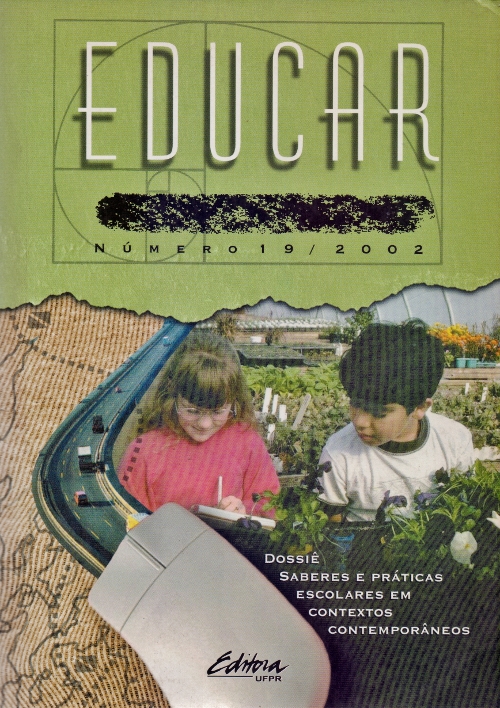A epistemologia da educação
Palavras-chave:
Conhecimento científico, paradigma social, método de projetos, Scientific knowledge, social paradigm, method of projects.Resumo
O conhecimento em Educação é examinado segundo o processo que toda ciência efetivamente realiza, na definição de seu objeto. Este objeto por sua vez é definido pelo paradigma que o sujeito científico assumir. Assim, a mudança de paradigma em uma ciência é uma ruptura epistemológica, que altera o próprio objeto dessa ciência. Entretanto, a ciência emerge pouco a pouco do cotidiano e de uma pragmática, que define seu projeto. É uma construção coletiva e cultural, da qual participam os sujeitos e na qual a palavra é o elemento-chave na organização do conhecimento.O sujeito científico é aqui entendido como sendo um conjunto de atividades estruturantes, ligadas a uma abordagem científica determinada e intencionalmente instituída para produzir o objeto científico.A intersubjetividade, segundo Habermas e a linguagem enquanto pragmática e discurso segundo Vygotsky, são examinadas para verificar a ação educativa, enquanto ação e enquanto comunicação, na tentativa de caracterizar o conhecimento da Educação como conhecimento científico. O conceito de interdisciplinaridade é necessário para tal caracterização, e vem da superação da ciência moderna, que é fragmentária, sendo sua fragmentação temática e não disciplinar. As condições de possibilidade da ação humana projetada no mundo a partir de um espaço tempo local, levam ao tipo de conhecimento que é necessário em nossa época: não determinístico, nem descritivista, possuidor de uma linguagem que é o seu método, plural e transgressor, fora de parâmetros fixos e de territórios demarcados, utilizando a metáfora e a exemplaridade como procedimentos. No conhecimento em Educação, o sujeito é ao mesmo tempo objeto, o que vem a definir tal conhecimento como processo e não estado, sendo então aplicado, e particularmente aplicado.
A epistemology of education
Abstract
Education epistemology knowledge in education is examined by the process that all science effetively realizes in the definition of its object . This object by its turn is defined by the paradigm that the scientific subject assumes. Thus the change in a science is an epistemological paradigm rupture of the epistemology that alters the proper object of that science. Little by little the science emerges from the reality and from a pragmatic that defines its project. It´s a collective and cultural construction , in which the subjects participate and the language is the key element in the knowledge organization. The scientific subject is here understood as a collection of strutured activities, linked to a scientific approach settled and intentionally established to produce the scientific object. The intersubjectivity as stated by Habermas and the language while pragmatic and speech as stated by Vygostsky , are examined to verify the educative action, in the attempt to caracterize the Educations Knowledge as a scientific Knowledge. The concept of interdisciplinarity is necessary for this characterization and comes from the overcoming of the modern science that is fragmented, being its fragmentation tematic and not disciplinary. The possibility conditions of the human action projected into the world from one space local time, will to the knowledge type that is necessary in over time not determined, neither to be described, it owns a language that is method, plural and transgressor, out fixed parameters and demarked territories, using the metaphor and the exemplification as procedures. In Education Knowledge the subject is at the same time the object the one that comes to define that knowledge as a process, and not as a state, to be then applied, and particularly applied.
Como Citar
Edição
Seção
Licença
Todo o conteúdo do periódico está licenciado sob uma Licença Creative Commons do tipo atribuição BY.
Os Direitos Autorais para artigos publicados na Educar em Revista são do autor, com direitos de primeira publicação para a revista. A revista é de acesso público (Open Access), sendo seus artigos de uso gratuito, com atribuições próprias, em aplicações educacionais e não-comerciais.



